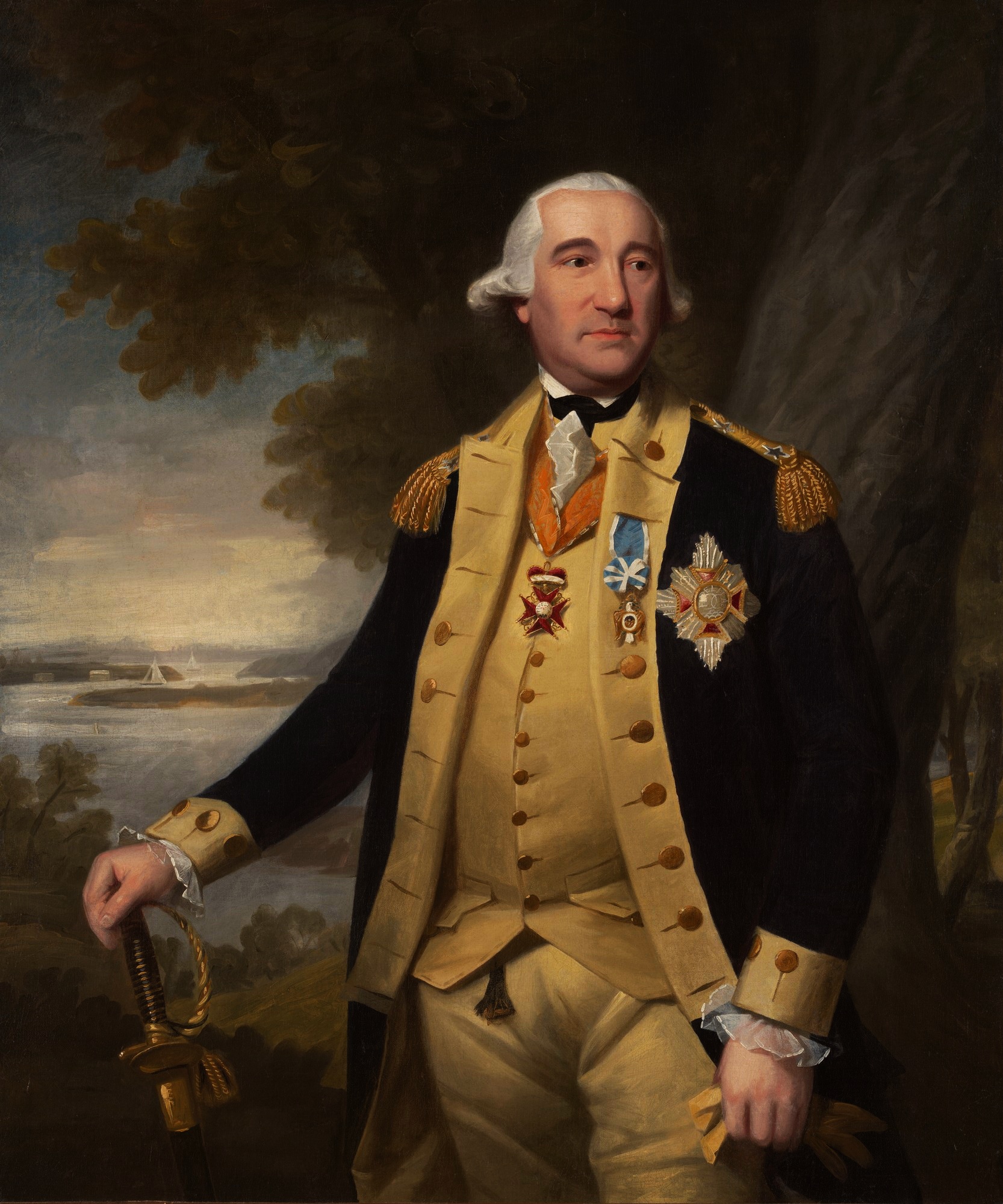Earl, Major General Friedrich Wilhelm Augustus, Baron von Steuben, 1786
“Baron Steuben has arrived at camp,” Washington wrote soon after. “He appears to be much of a gentleman, and as far as I have had an opportunity of judging, a man of military knowledge and acquainted with the world.” Washington’s confidence in von Steuben grew quickly. Within two weeks, he made the baron acting inspector general and asked him to examine the Continental Army’s condition.
“What [Steuben] discovered was nothing less than appalling,” wrote Fleming in Washington’s Secret War. “He was confronting a wrecked army. A less courageous (or less bankrupt) man would have quit on the spot.” Unlike the American forces in New York, who had beaten the British at Saratoga in fall 1777, the army in Pennsylvania had suffered a series of defeats. When they lost the Battle of Brandywine in September 1777, the British had seized Philadelphia. Now—following common military practice of the era—they had camped for the winter. But Valley Forge, their winter quarters, was nearly as punishing as battle: hastily built huts, cruel temperatures, scarce food.
The baron found soldiers without uniforms, rusted muskets without bayonets, companies with men missing and unaccounted for. Short enlistments meant constant turnover and little order. Regiment sizes varied wildly. Different officers used different military drill manuals, leading to chaos when their units tried to work together. If the army had to fight on short notice, von Steuben warned Washington, he might find himself commanding one-third of the men he thought he had. The army had to get into better shape before fighting resumed in the spring.
So, von Steuben put the entire army through Prussian-style drills, starting with a model company of 100 men. He taught them how to reload their muskets quickly after firing, charge with a bayonet and march in compact columns instead of miles-long lines. Meanwhile, he wrote detailed lists of officers’ duties, giving them more responsibility than in English systems.
Soldiers gaped at the sight of a German nobleman, in a French-style black beaver hat, drilling poorly clothed troops. Though von Steuben raged and cursed in a garbled mixture of French, English, and German, his instructions and presence began to build morale. “If anything, the curses contributed to Steuben’s reputation as an exotic character who was good for a laugh now and then,” wrote Fleming.
Breaking down The Baron's Blue Book, HERE.
"Building the Continental Army," HERE.

No comments:
Post a Comment